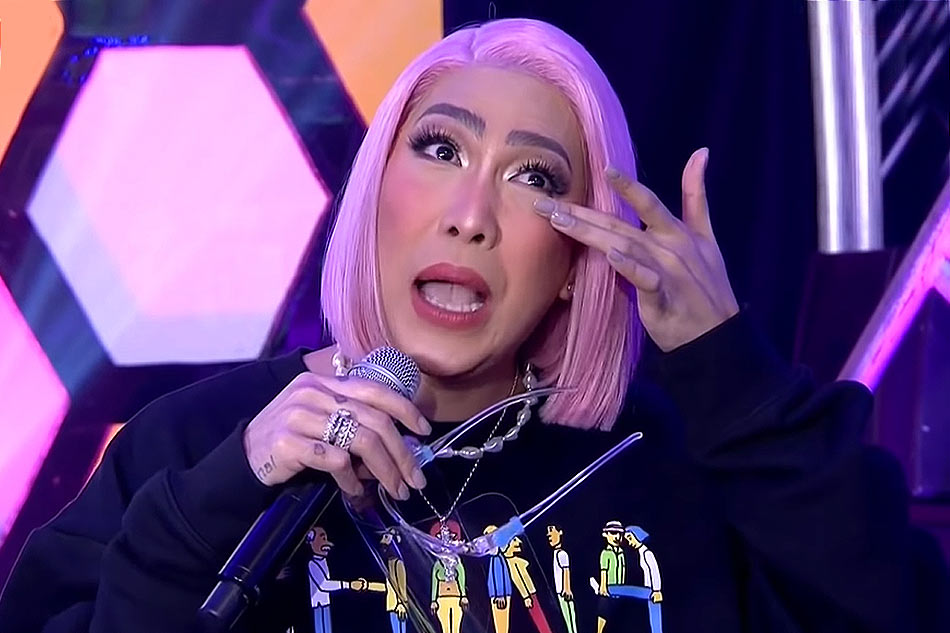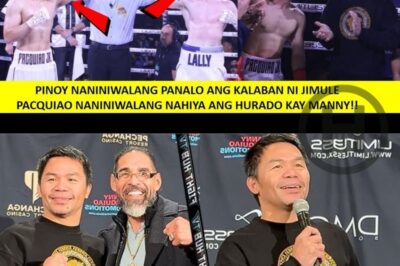Vice Ganda and the Jet Ski Joke Controversy: Why the Davao City Council Responded and What It Really Means
1. Introduction: Humor Meets History
Comedian and TV personality Vice Ganda has never been shy about pushing boundaries in his comedy, often poking fun at Philippine politics, showbiz, and society at large. But a recent joke made during a concert segment referencing former President Rodrigo Duterte’s iconic “jet ski to the West Philippine Sea” remark has ignited criticism, condemnation, and an official response from the Davao City Council.
The issue sparked intense online debate, including calls for Vice to be declared persona non grata in Davao—President Duterte’s hometown. But what really happened? Did the council ban him? Is his freedom of expression under threat? And how did national figures respond?
Let’s unpack this developing controversy.
2. The Joke That Sparked It All
During a live performance, Vice Ganda jokingly referenced Duterte’s 2016 campaign promise to ride a jet ski to assert Philippine sovereignty in the West Philippine Sea—a comment that, while widely publicized and emotionally powerful at the time, was later clarified by Duterte himself as a “hyperbole” or joke.
Vice’s bit satirized the promise in a comedic manner, comparing it to other “unfulfilled” statements. While intended as humor, it drew backlash from Duterte loyalists and supporters in Davao City, who considered it disrespectful and “insulting to Davaoeños.”
Clips of the joke circulated widely, and soon, local leaders took notice.
3. Davao City Council Responds: A Resolution of Condemnation
On August 12, 2025, the 21st Davao City Council passed a resolution condemning Vice Ganda’s joke.
Key points from the resolution:
The council viewed the joke as “satirical and derogatory”, stating it disrespected not only former President Duterte but also the “identity and pride of Davaoeños.”
The measure was initiated by Councilor Danilo Dayanghirang, who emphasized that Duterte, as a native of Davao and a former city mayor, holds a symbolic place in the city’s culture and governance legacy.
The resolution acknowledged freedom of speech, but reminded artists that this right comes with the responsibility of respecting cultural and historical sensitivities, especially in public performances.
Importantly, while the resolution was firm in tone, it did not declare Vice persona non grata, despite online assumptions to the contrary.
4. Clarification: No “Persona Non Grata” Status for Vice
One of the most widely circulated claims was that Davao City had “banned” Vice Ganda by declaring him persona non grata.
This is false.
Acting Vice Mayor Rodrigo “Rigo” Duterte II clarified in public statements that no such declaration was made.
The council opted for condemnation, rather than symbolic banning, to avoid wasting city resources on non-legislative theatrics.
Duterte’s grandson emphasized that Davao’s legislative body was focused on core issues like infrastructure, education, and public health—not social media controversies.
This means that Vice Ganda is still welcome in Davao City, though the council made clear their disapproval of his statements.
5. National Response: Mixed Views on Satire and Respect
The incident drew reactions from political and public figures nationwide.
Vice President Sara Duterte
A Davaoeña herself, the VP weighed in carefully, stating that decisions like declaring someone persona non grata fall under local council jurisdiction, and she respected the outcome.
She reminded the public that while humor is a tool for entertainment, context and delivery matter, especially when it involves national figures.
Malacañang Press Officer Claire Castro
Speaking in a media forum, Castro encouraged restraint in overreacting to jokes, emphasizing that comedy is a form of art and should be viewed within that lens.
She acknowledged that while some jokes may be distasteful to certain sectors, freedom of expression must be protected, especially for artists and performers.
Akbayan Representative Perci Cendaña
The lawmaker expressed support for Vice, saying that satire has long been a part of democratic discourse, particularly in confronting difficult truths.
He also warned against using public office to punish political humor, citing this as a slippery slope toward censorship.
6. Public Sentiment: Split Opinions on Social Media
Filipino netizens reacted with strong opinions, both for and against Vice Ganda:
Supporters say:
“Comedy should make us think. Vice didn’t say anything illegal.”
“Duterte himself said the jet ski comment was a joke. Why is it off-limits for comedians?”
“Let’s not act like satire is disrespect. It’s part of freedom.”
Critics argue:
“There’s a line between satire and insult. Vice crossed it.”
“He mocked someone our city respects deeply. This is not just comedy anymore.”
“That joke undermines Duterte’s legacy as a Davaoeño leader.”
Interestingly, even those critical of Vice’s joke also expressed discomfort with the idea of banning or silencing artists over comedy bits.
7. Vice Ganda’s Response: Silence and Strategy
As of writing, Vice Ganda has not issued a public apology or response to the Davao City Council’s resolution. This silence may be strategic:
Vice is no stranger to controversy, and in many previous instances, he has chosen to let issues cool down before addressing them.
His management has likewise made no official statement, possibly to avoid further escalation.
Given his experience in entertainment and politics, Vice likely understands the value of timing—and may be waiting to respond through his own platforms or shows.
8. Context: Duterte’s “Jet Ski” Legacy
To understand the sensitivity of Vice’s joke, one must consider the historical context:
In a 2016 campaign speech, then-candidate Duterte declared that he would ride a jet ski to plant a Philippine flag in the disputed Spratly Islands—a statement that became symbolic of his strong nationalist stance.
Years later, Duterte admitted it was a “campaign hyperbole” meant to express patriotic intent rather than an actual plan.
Still, many supporters see the statement as a powerful metaphor, not a literal promise—and therefore, consider mocking it to be disrespectful.
This duality—where some see a joke and others see a sacred symbol—is at the heart of the backlash against Vice.
9. Legal and Cultural Implications
While no legal action has been filed, the case illustrates a growing tension in Filipino society:
The boundary between free speech and respect for public figures is increasingly blurry.
City councils and government bodies must walk the line between upholding moral standards and avoiding censorship of critical voices.
The role of comedy as cultural commentary is under scrutiny in an era where satire is often mistaken for political attack.
In Vice Ganda’s case, this event might set a precedent for how local governments respond to comedic content, especially when it involves revered figures like Duterte.
10. Moving Forward: Lessons Learned
Regardless of where you stand—whether you found the joke funny, distasteful, or politically charged—this incident raises important questions:
Should political figures be off-limits in comedy?
Where does responsible satire end and disrespect begin?
How should local governments balance freedom and tradition?
While the Davao City Council’s condemnation has stirred national discussion, it has also reinforced the need for thoughtful, respectful discourse in public art and performance.
Conclusion: A Comedian, A City, and the Power of Words

Vice Ganda’s jet ski joke may have been a few seconds of laughter, but it opened a much longer conversation about respect, identity, and freedom.
In choosing not to declare him persona non grata, Davao’s leadership took a middle path—condemning the message, but not banning the messenger. Whether this balance holds in future controversies remains to be seen.
In a democracy, satire is inevitable. So is accountability. The key is knowing how to navigate both—onstage and off.
Further Reading (No Links in Article)
Davao City Council Resolution on Vice Ganda’s Joke – Mindanao Times
Statement by Acting Vice Mayor Rigo Duterte – SunStar Davao
Commentary by VP Sara Duterte on Jurisdiction of Local Councils – Manila Bulletin
Claire Castro on Humor and Freedom of Speech – PEP News
Akbayan’s Stand on Artistic Expression and Satire – Inquirer
Historical Context of Duterte’s “Jet Ski” Remark – Philippine Star
Vice Ganda’s Past Controversies and Handling of Public Issues – Rappler
News
Gerald Anderson Sets the Record Straight: Denies Rekindling Romance with Julia Barretto Amid Social Media Rumors (NH)
Gerald Anderson Sets the Record Straight: Denies Rekindling Romance with Julia Barretto Amid Social Media Rumors December 2, 2025…
Sibling Showdown: Eman Bacosa Faces Jimuel Pacquiao in an Epic Boxing Clash (NH)
Sibling Showdown: Eman Bacosa Faces Jimuel Pacquiao in an Epic Boxing Clash December 2, 2025 Introduction In the world of…
Jimuel Pacquiao Expected to Struggle Against Opponent, Says Disappointed Judge: Manny Pacquiao Feels Embarrassed (NH)
“Jimuel Pacquiao Expected to Struggle Against Opponent, Says Disappointed Judge: Manny Pacquiao Feels Embarrassed” December 1, 2025 Introduction The boxing…
Jinkee Pacquiao Drops Spicy Comment on Jillian Ward and Emman Bacosa Relationship: Social Media Ablaze (NH)
“Jinkee Pacquiao Drops Spicy Comment on Jillian Ward and Emman Bacosa Relationship: Social Media Ablaze” December 1, 2025 Introduction…
Netizen Regrets Handing Over Yu Menglong’s Clearest CCTV Footage to His Agency: Public Debate Erupts Online (NH)
“Netizen Regrets Handing Over Yu Menglong’s Clearest CCTV Footage to His Agency: Public Debate Erupts Online” December 1, 2025…
Sylvia Sanchez Nearly Melts with Joy at Zanjoe Marudo’s Heartwarming Gesture for Sabino’s Child (NH)
“Sylvia Sanchez Nearly Melts with Joy at Zanjoe Marudo’s Heartwarming Gesture for Sabino’s Child” December 1, 2025 Introduction In…
End of content
No more pages to load












